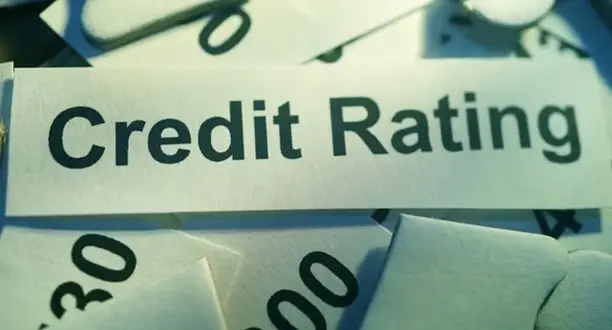Credit Rating, you see, is nothing short of the report card of any individual or company for that matter, in this financial world. But why exactly is there a need for this kinda method or rating system? Well, you see, by giving someone or a company a rating, it becomes much clearer for the banks and financial institutions to lend money to someone, and it can be used by the customer who wanna buy from a company by looking at their credit rating because that can tell a lot about how the company is doing, money-wise, you know? And today, we are here to talk about the possible advantages and disadvantages of credit rating, so yeah, here we go.
Advantages of Credit Rating

For Investors
- Think of credit ratings like your GPS for investing. They help you figure out how risky a company is before you put your money in it. So, if you’re looking at a company’s rating, it’s like getting a heads-up on whether it’s your kind of investment risk or not.
- Knowing what a credit rating says makes you the boss of your investment choices. This is super handy for folks who aren’t professional investors but still wanna get in on the action.
- A top-notch rating is like a green light saying, ‘Hey, this investment’s pretty safe.’ It shows that the company is serious about keeping its money matters in check.
- Credit rating agencies don’t just set it and forget it. They keep an eye on things and update ratings regularly. That means you’ll always have the freshest info on where the risks are in your investments.
For Companies
- You know, for top-notch companies, it’s like a walk in the park to pull in investors and bag funds. This happens ’cause their solid rating kinda sends a message of trust and confidence.
- Having a hefty credit rating? Well, that’s like giving your company’s image a major glow-up in the eyes of the finance world.
- Here’s the deal, you see, if a company’s got a sky-high rating, they usually get to enjoy the perks of lower interest rates on loans. This means they’re not sweating it too much with financial headaches.
- Alright, so having a sweet credit rating is like holding a golden key. It opens up all sorts of funding doors, which is super crucial when a company wants to grow big and try out new things.
Other Benefits
- Alright, let’s break it down: credit ratings are crazy important for boosting our capital markets. They are the ones making sure our hard-earned cash is being used wisely. Imagine not having them, we’d be clueless about where to safely stash our money, right?
- Now, about sizing up risks, you see, credit ratings have got this neat, standardized method to figure out how much of a gamble an investment is. And trust us, this isn’t just handy for people looking to invest; it’s a big deal for banks and other lenders too.
Disadvantages of Credit Rating
1. The Big Risk of Not Knowing Enough
So, here’s a major headache when it comes to credit ratings: sometimes companies don’t tell the whole story. This is a big deal, you know, because a credit rating is only as solid as the info it’s built on. Let’s say a company’s playing hide and seek with important facts (maybe they don’t mean to, or maybe they do), then the credit rating might not show what’s really going on with their money matters. And guess what? This can totally lead investors down the wrong path. They rely on these ratings to figure out where to put their cash. If there’s key stuff missing, the rating could be way off, looking better than it should. This means investors might end up taking on more risk than they planned for.
2. Could Be Some Favoritism Going On
Now, let’s talk about another downside: bias in credit ratings. Yeah, that’s right, sometimes these ratings aren’t completely fair and square. This could be because the folks giving the ratings and the company being rated are a bit too cozy with each other. Or maybe there’s some outside pressure cooking. Let’s say a rating agency and a big company have been in business together for ages. Or maybe there’s a chance for more deals in the future. This kind of situation can tilt the scales, you know? Whether it’s just a feeling or it’s really happening, it can make people doubt how much they can trust these ratings. Investors might start to wonder if they’re getting the real deal or just what the company wants them to see.
3. Challenges for New Companies
Well, you see, fresh companies often bump into big hurdles when they try to get a credit rating. These new companies, without a long history or a solid financial past, usually have a tough time getting a rating that really shows what they’re worth. This can be a real headache because if you don’t have a rating or if your rating’s kinda low just ’cause you’re new, potential investors might just walk away. This is super tricky in industries that move super fast, where new companies could be leading the charge with cool new stuff but get tripped up because their creditworthiness isn’t up to the mark.
4. Static Nature of Ratings
And here’s another thing, the way credit ratings work is kinda slow. Sure, the agencies that hand out these ratings do update them, but they’re not exactly speedy about it. The thing is, businesses change fast, like super fast, but their credit rating doesn’t always keep up. It’s kinda like trying to keep track of a racecar with a bicycle. So, what happens? Investors end up making choices based on old news, and that can lead them to put their trust and cash in places that might not be as stable or secure as they think.
Conclusion
That looks like more than enough for today. So yeah, now you know every nitty gritty about credit rating, well precisely about how it works and how it can affect companies, investors, and even customers. Right?

Meet Suhas Harshe, a financial advisor committed to assisting people and businesses in confidently understanding and managing the complexities of the financial world. Suhas has shared his knowledge on various topics like business, investment strategies, optimizing taxes, and promoting financial well-being through articles in InvestmentDose.com


